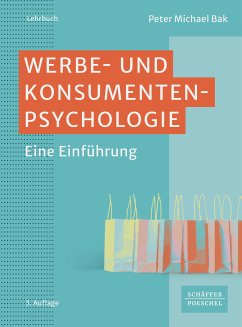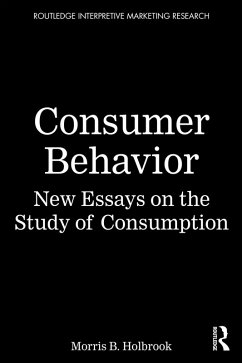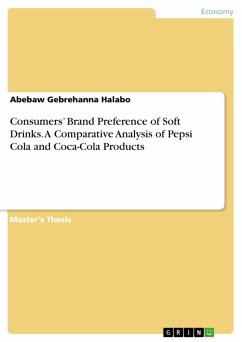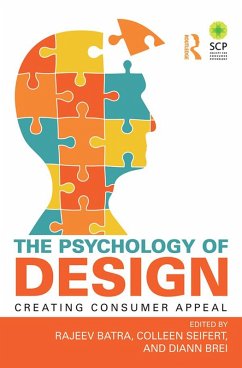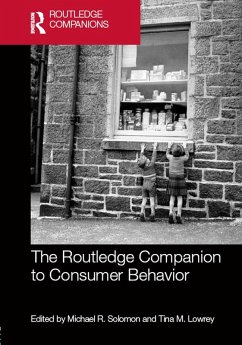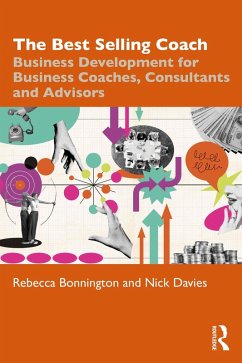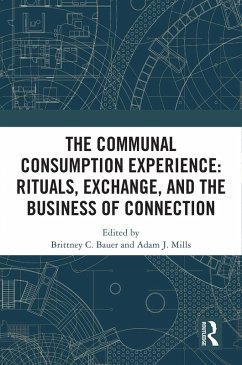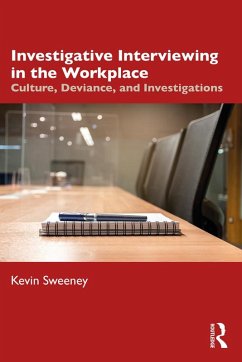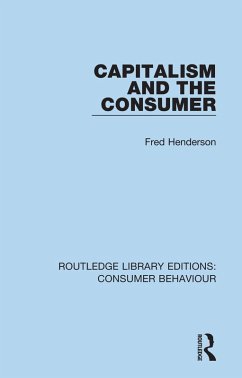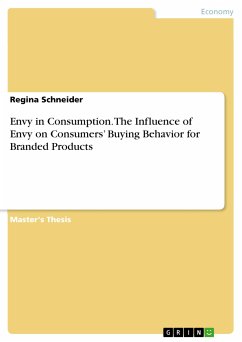
Envy in Consumption. The Influence of Envy on Consumers' Buying Behavior for Branded Products (eBook, PDF)
Sofort per Download lieferbar
Statt: 27,95 €**
18,99 €
inkl. MwSt. und vom Verlag festgesetzt.
**Preis der gedruckten Ausgabe (Broschiertes Buch)
Alle Infos zum eBook verschenkenWeitere Ausgaben:

PAYBACK Punkte
0 °P sammeln!
**Preis der gedruckten Ausgabe (Broschiertes Buch)
Master's Thesis from the year 2014 in the subject Business economics - Offline Marketing and Online Marketing, grade: 1,3, Université Paris 1 Panthéon-Sorbonne (Paris School of Economics), course: Consumer Psychology, language: English, abstract: The present study analyzes envy and its effects on individuals' willingness to pay. On the basis of previous research in the field of envy, an experiment with 80 subjects was designed in order to find out more about malicious envy in relation with branded products. By eliciting malicious envy through a pitch-and-toss game with an unfair outcome, a b...
Master's Thesis from the year 2014 in the subject Business economics - Offline Marketing and Online Marketing, grade: 1,3, Université Paris 1 Panthéon-Sorbonne (Paris School of Economics), course: Consumer Psychology, language: English, abstract: The present study analyzes envy and its effects on individuals' willingness to pay. On the basis of previous research in the field of envy, an experiment with 80 subjects was designed in order to find out more about malicious envy in relation with branded products. By eliciting malicious envy through a pitch-and-toss game with an unfair outcome, a better-off and a worse-off participant could be determined. During the experiment, malicious envy was supposed to influence individuals' willingness-topay for a bar of chocolate. After collecting the willingnesses-to-pay, the results of an experimental group and a control group were compared. The findings show that malicious envy effectively influences the subjects' willingness-to-pay for the branded product as well as for the no-name product in a negative way, whereas the general perception of the chocolate is positive.
Dieser Download kann aus rechtlichen Gründen nur mit Rechnungsadresse in A, B, BG, CY, CZ, D, DK, EW, E, FIN, F, GR, HR, H, IRL, I, LT, L, LR, M, NL, PL, P, R, S, SLO, SK ausgeliefert werden.




